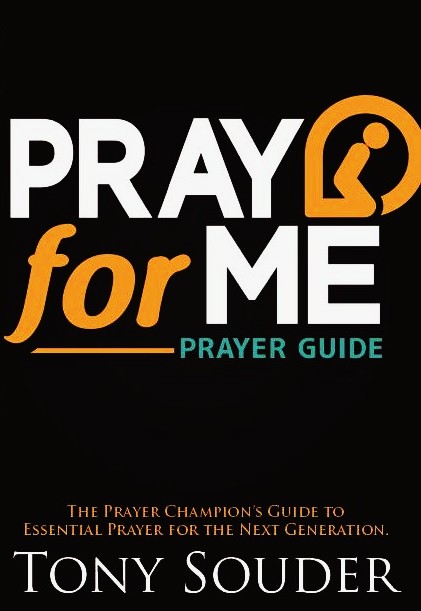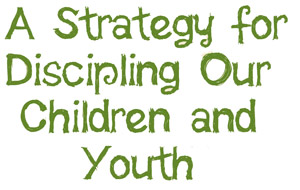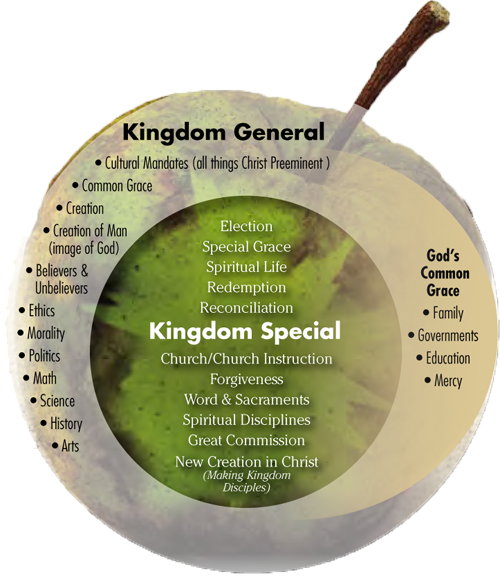DANNY MITCHELL
October 21, 2015
The methodology of any church’s ministry to adolescents should grow out of a marriage between biblical theology and ministry context. If we understand ministry to youth in its simplest form—believing adults from inside and outside the nuclear family who invest of themselves in children and youth— then we can begin to see how discipling the next generation works itself out within the Covenant community. I am of the opinion that after worshipping God, the raising and discipling of rising generations and the passing on of the faith to that generation could be viewed as God’s covenant people’s primary responsibility.
If that last sentence is anywhere close to being correct, then on some level, every church should regularly evaluate whether ministries to the rising generations are enough of a priority within their body. However, debating that issue is not the purpose of this article. Instead, I want to focus on the role that the Covenant community plays in helping parents with the raising and discipling of their children in a fallen world.
The cultural mandate in Genesis 1:28 set a familial trajectory for our first parents. They were to be fruitful and multiply, not just for the sake of having children, but for the stated purpose of filling the earth and subduing it. Implicit in this mandate is the responsibility of raising their children to be able to fulfill these responsibilities as well. The children to come would need examples, lessons, love, and discipline for this great task.
The Fall didn’t take away Adam and Eve’s parental responsibility. Scripture bears this out in several places ( Psa. 78, Deut. 6), at the same time showing that the design God had for familial relationships was marred by sin. The epicenter, ground zero, for sin’s disastrous entrance into the world was the family. Sin focused on the family after the Fall when Cain killed Abel. After the flood only one family inhabited the earth but sin tore it apart (Gen. 9:18-28). Leading up to the formation of God’s covenant people in Genesis 12, the family clearly needs help.
Let me state the obvious: The family still needs help today, and if the Lord waits another century or two until his return, then the family will continue to need that help. As long as parents with a sinful nature continue having children, born with a sinful nature into a sinful world, parents will struggle with the responsibility of raising and discipling their children. Even though, in Christ, our sins are forgiven, and even though the Holy Spirit enables us to die to sin daily, we continue to need help raising our children in the fear and admonition of the Lord.
This is one of the reasons that the Lord formed his covenant people. The family doesn’t exist in isolation but as part of a larger family. Together, that larger family surrounds the parents and their children so that the covenant community participates in the raising and discipling of the children within that larger family. When this happens, parents, children and the covenant community begin experiencing one of the covenant blessings of being part of God’s people.
This perspective of youth ministry moves the question of models and methods from a primary question to a secondary question. As long as families within the local body are not trying to raise and disciple their children in isolation, as long as the covenant community isn’t trying to isolate youth ministry from the body, as long as adults in the congregation invest in the lives of adolescents, and as long as pastors and elders view this call to disciple the rising generations as a primary responsibility of the Church, then youth ministry can move from a programmatic ministry of the Church to a ministry that emphasizes multigenerational relationships with the covenant family. In this way, programs will exist to serve these relationships, instead of programs existing because of the lack of relationships between the adult members of the body, and the rising generations.
Because I have been in youth ministry for two and half decades, I know that paragraph oozes with “Pollyanna”-thinking about the church and its ministry to youth. It saddens me that that is the case. Perhaps moving from questions about proof texts for youth ministry, to developing an understanding of the theology of next-generation ministry (within the context of covenant theology) would help the Church see these ideas not as “pie in the sky” thinking, but as biblically informed ideas for the church.
Now if you will excuse me, I need to go plan games for youth group while the adults have Bible study in the fellowship hall. I wonder if blindfolded kickball is a good idea?




 In our Christian education and Publications training events, we use the phrase “the whole Gospel for the whole church.” We have been asked what we mean by that, to which we have responded: Kingdom discipleship focuses on the whole truth of scripture, and its audience is the entire church at all age levels.
In our Christian education and Publications training events, we use the phrase “the whole Gospel for the whole church.” We have been asked what we mean by that, to which we have responded: Kingdom discipleship focuses on the whole truth of scripture, and its audience is the entire church at all age levels.
 A kingdom disciple is not only one who knows King Jesus, but one who loves, serves, and thinks like King Jesus. How do we begin to take our children from the classical grammar stage of their faith into the logical and rhetorical living out of what they believe? A standard component of our ministry to children must be parental training. It is the serving, giving, loving, obedient parent who will most likely produce a serving, giving, loving, obedient child. Again, this is a heart issue, but no person can see a parent’s heart better than their own child. They are blessings in this way – always reminding us of our need of saving grace. As we know and see the needs of each individual child, the church’s ministry is to ask what we can do to aid the parent in bringing the child to Christ. This is the gospel message – Jesus came down to earth, becoming man, and we must meet every child and family where they are, while knowing that our God is faithful. He is most glorified when the most difficult circumstances are overcome each day by the work of his grace. True kingdom ministry is never trying to get around a special need, but looking for the power of God to work mightily in it.
A kingdom disciple is not only one who knows King Jesus, but one who loves, serves, and thinks like King Jesus. How do we begin to take our children from the classical grammar stage of their faith into the logical and rhetorical living out of what they believe? A standard component of our ministry to children must be parental training. It is the serving, giving, loving, obedient parent who will most likely produce a serving, giving, loving, obedient child. Again, this is a heart issue, but no person can see a parent’s heart better than their own child. They are blessings in this way – always reminding us of our need of saving grace. As we know and see the needs of each individual child, the church’s ministry is to ask what we can do to aid the parent in bringing the child to Christ. This is the gospel message – Jesus came down to earth, becoming man, and we must meet every child and family where they are, while knowing that our God is faithful. He is most glorified when the most difficult circumstances are overcome each day by the work of his grace. True kingdom ministry is never trying to get around a special need, but looking for the power of God to work mightily in it. Most churches will at some point wrestle with the question of purpose for their ministry to the next generation. The answer to this foundational question becomes the destination point that the entirety of the youth program is moving toward. In the same way that a GPs needs the destination point in order to tell you how to get there, a youth ministry needs a desired outcome to be able to chart the best course of action. Without a well-thought out, biblically-informed, easily-understood purpose, your youth ministry will waste valuable time on programs that do little more than entertain the rising generation. For this reason, every church should not only do the work necessary to answer the question of purpose in ministry to youth, but it should regularly use that purpose as the lens with which the youth program is evaluated.
Most churches will at some point wrestle with the question of purpose for their ministry to the next generation. The answer to this foundational question becomes the destination point that the entirety of the youth program is moving toward. In the same way that a GPs needs the destination point in order to tell you how to get there, a youth ministry needs a desired outcome to be able to chart the best course of action. Without a well-thought out, biblically-informed, easily-understood purpose, your youth ministry will waste valuable time on programs that do little more than entertain the rising generation. For this reason, every church should not only do the work necessary to answer the question of purpose in ministry to youth, but it should regularly use that purpose as the lens with which the youth program is evaluated.
